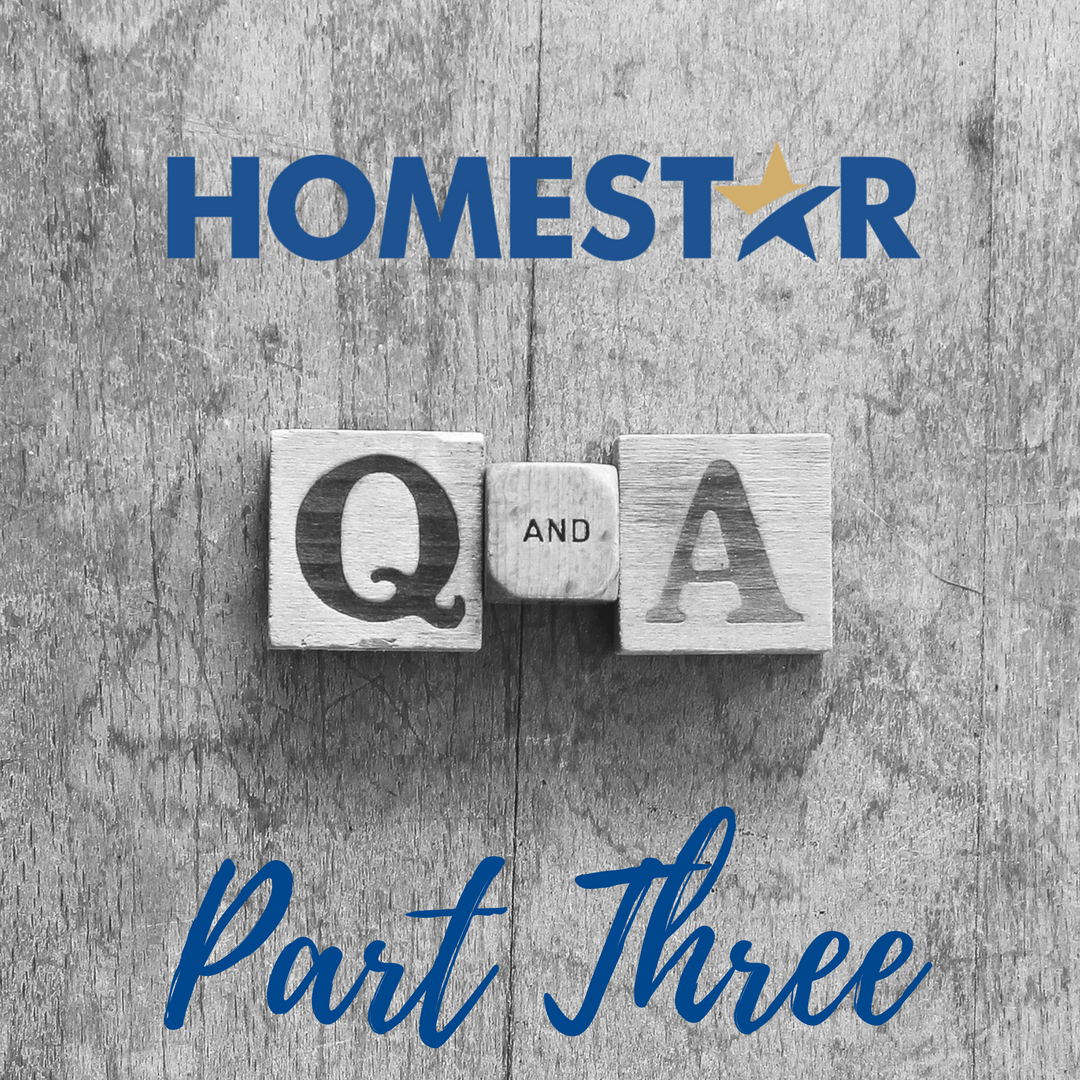
We hope these questions help you throughout your homebuying journey. As always, you can reach out to us with more questions – we are always here to help you find “the easiest way home.”
5 Homebuyer FAQs answered:
1. Q: How much is my final mortgage payment going to be?
A: HOMESTAR will quote you an “estimated” payment based on your pre-qualification amount and what the payment consists of (PITI). In addition, the homeowners insurance and property taxes are estimated based on average costs. However, once you decide on a property and we are able to verify the property taxes, as well as know how much you will be paying for the homeowners insurance, we will be able to determine a more accurate payment amount.
2. Q: Will my payment change?
A: If you have a fixed-rate loan, then the loan payment (principal and interest portion of your loan) would not change. However, if you escrow for property taxes and homeowners insurance, it may change as the cost for these items change. If you have private mortgage insurance (PMI), your payment normally decreases over time depending on which type of loan you have. The mortgage insurance (MI) on some FHA loans does not disappear. Homeowners association (HOA) dues are generally not escrowed into the payment and change over time.
3. Q: How much will I need for a down payment?
A: HOMESTAR will provide you with an “estimated” dollar amount based on your loan program and pre-qualification amount. In addition, the cash to final close will depend on seller contribution, etc. Once you find a property, a Mortgage Loan Originator will provide you with a complete loan estimate, which will detail the costs of the loan and will be based on the terms of the sales contract.
4. Q: My spouse’s credit is not the best, what can we do? We need both incomes to buy a house; my spouse makes more money than I do.
A: Your loan is based on the middle of the three credit scores and on the lower of the two co-borrowers. Is there a possibility of another co-borrower who will sign with you?
5. Q: Is an escrow account required?
A: An escrow account for taxes and insurance is generally required for Conventional loans that have an LTV over 80%. However, LTV is not the only factor in allowing escrows to be waived. Underwriting will make the final determination.
If you were to fall behind on your property taxes, you could end up with a lien on your home – and eventually lose it. If your homeowners insurance lapsed and your home was seriously damaged, the lender’s investment would be in jeopardy.
An escrow account offers two benefits for you:
-
- You’re automatically putting money away for expenses each month instead of having to budget for a few big payments.
- Someone else is managing those taxes and insurance bills for you.
Bonus Question:
Q: I admit I have a foreclosure in the past; how does that affect me buying a house now?
A: It depends on how long ago it was, as there is a grace period of three to seven years. If it has been over three years, you may qualify for first-time homebuyer assistance.
Remember, you can contact the HOMESTAR Team at any time with your home loan questions or for more information. We are here to help get you home!
Missed Part Two of our “Homebuyer FAQ” series? You can always reference the post here.
Part One can be referenced at this link as well.
Copyright © 2020. Homestar Financial Corporation NMLS #70864 Georgia Residential Mortgage Licensee #17368. This is not an offer to enter into an agreement or a commitment to lend. Not all customers will qualify. All terms, information, conditions, rates, and programs are subject to change without prior notice. All products are subject to credit and property approval. Not all loan products are available in all states. Certain other restrictions may apply. For important licensing information, refer to nmlsconsumeraccess.org. Homestar Financial Corporation is an equal housing lender and is not affiliated with any government entity. Posted 5/4/2018. Updated 10/14/2020.


